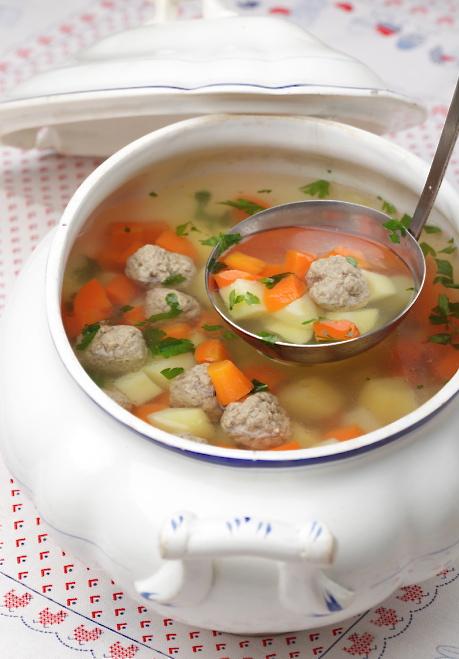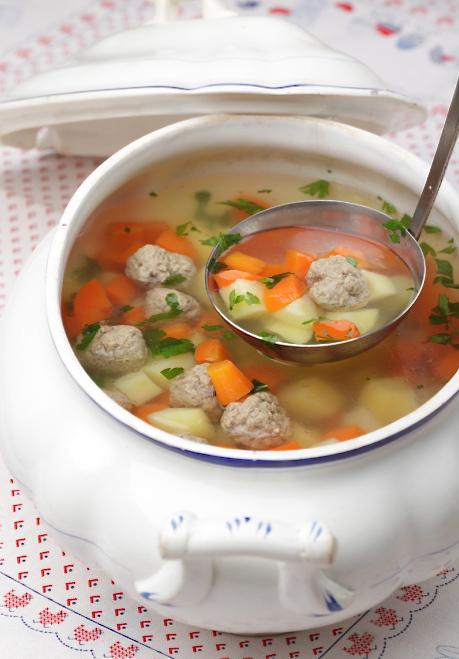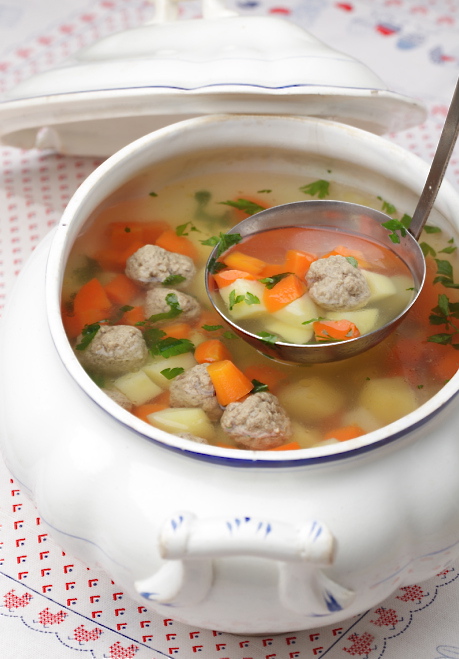Broth is the touchstone of all traditional, gourmet cookery. “Without broth, one can do nothing,” claimed Auguste Escoffier, the grandfather of French cookery. But it wasn’t just the French who understood the health benefits of slow cooking and about the “secrets in the sauce”. Broth is more than just a food; it has had its uses as folk medicine around the world.
For centuries, chicken soup has been given to those who are suffering the symptoms of colds and the flu. And there is an old proverb used in South America that, “Fish broth will cure anything”.
So, does stock made from the simple application of boiling bones and cartilage deserve its reputation as a cure-all, or is it just a classical comfort food of the ages? Or, maybe both?
There is scientific evidence that chicken stock does in fact help the ailing patient to feel better, according to studies undertaken by Stephen Rennard MD at the University of Nebraska. He discovered that chicken broth helps to break up congestion in the chest and decreases the flow of nasal secretions, which are tell-tale signs of a common virus, such as a head cold or bronchitis. Simmering chicken bones in water over several hours releases an amino acid called cysteine, which thins the mucus and allows the patient to better expel it from the lungs and sinuses.
A simple, health-giving broth is made from slow cooking bones and vegetables in water over several hours. By adding an acid to the water, such as a splash of vinegar or lemon juice, more calcium from the bones will seep into the liquid enhancing its nutritional value. But it is the naturally occurring gelatin forming in the broth that has been acclaimed as a most nutritious foodstuff. With a good broth, the liquid should congeal and solidify after it cools.
The Chinese have long known about the strengthening qualities of gelatin and have used it as a medicine and longevity elixir. Li Shizhen, the great medical scientist of China, first discovered the health benefits of gelatin, which at that time, was made by stewing donkey hide. In medical texts, he recorded that gelatine tonifies and enriches the blood.
The French added gelatin to stews and soups to feed their armies during times of war and also to feed the hungry during famines. This is because gelatin contains large amounts of arginine and glycine, amino acids which work as a protein sparer that can extend the nutrition of a meagre diet containing little meat and fresh vegetables.
Benefits for Modern Health
In modern times, broth can still offer an appealing list of benefits. It is a perfect food for body builders or anyone who’s into exercise, as it is full of body building proteins and essential minerals. By skimming off the congealed fat on the surface of the cooling liquid, broth becomes a low fat but sustaining food. The proteins give one a full feeling for longer, which, alongside exercise, aids in the mission of losing excess weight.
Those who suffer heart burn and painful stomach ulcers can also benefit from drinking broth on a regular basis. This is because broth helps the stomach to restore its lining. Factors such as chronic stress, alcohol, a poor diet and some medications can slowly eat away at the mucus-like lining of the gut. Broth aids in helping the stomach to rebuild its own lining and help restore the balance of good bacteria, which keeps you healthy on the inside.
A Healthy and Tasty Recipe
Commercial stock cubes and flavour sachets are no substitute for a real broth. And why would you substitute when making your own is so easy to do?







